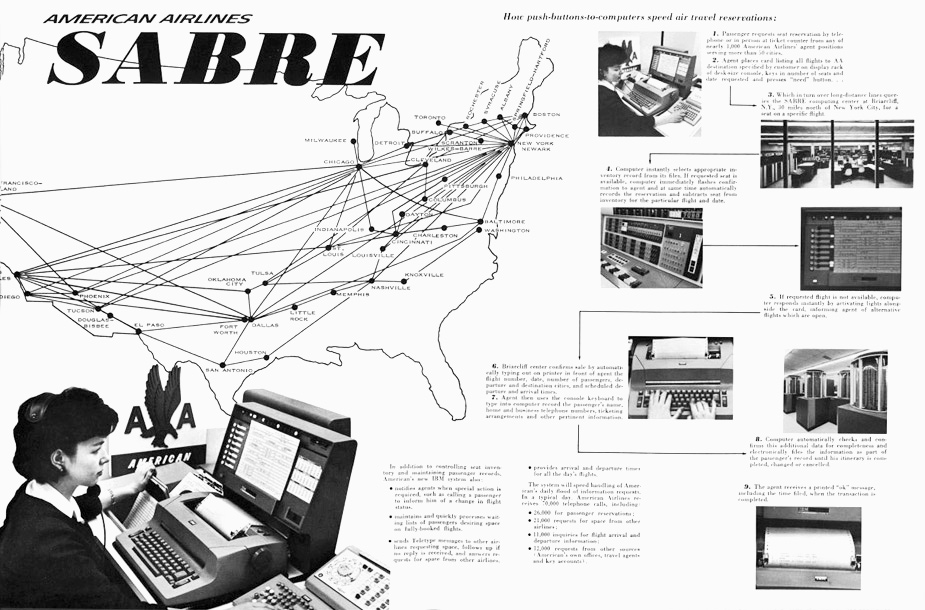theme: recommendation
Semi Automatic Business Research Environment
1976

Speaking before the US Congress, the president of American, Robert L. Crandall, boldly declared that biasing SABRE’s search results to the advantage of his own company was in fact his primary aim. He testified that “the preferential display of our flights, and the Speaking before the US Congress, the president of American, Robert L. Crandall, boldly declared that biasing SABRE’s search results to the advantage of his own company was in fact his primary aim. He testified that “the preferential display of our flights, and the corresponding increase in our market share, is the competitive raison d’etre for having created the [SABRE] system in the first place”. We might call this perspective “Crandall’s complaint:” Why would you build and operate an expensive algorithm if you can’t bias it in your favor? d’etre for having created the [SABRE] system in the first place” (Petzinger, 1996). We might call this perspective “Crandall’s complaint:” Why would you build and operate an expensive algorithm if you can’t bias it in your favor?
(Sandvig, 2014)Copeland, D. G., Mason, R. O., & McKenney, J. L. (1995). Sabre: The development of information-based competence and execution of information-based competition. IEEE Annals of the History of Computing, 17(3), 30–56. [link]
Sandvig, C. (2014). Seeing the Sort: The Aesthetic and Industrial Defense of “The Algorithm”. NMC Media-N Journal of the New Media Caucus. [link]
theme: recommendation